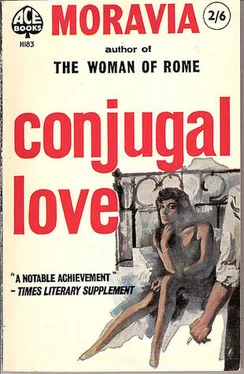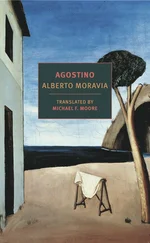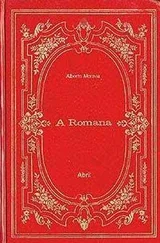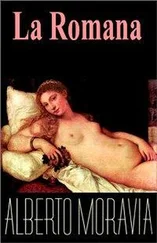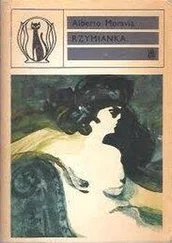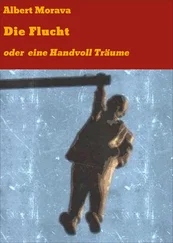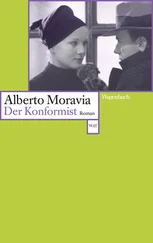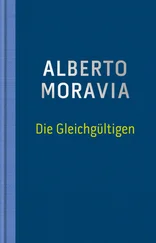Later, after Antonio had left, I went into my bedroom and, while dressing, I started as usual to think about the work I had done. On other days I had been used to think merely of the pages I had written that same morning, but this day, for the first time, I gloated over the whole story, caressing it in my memory from beginning to end. There in front of me, in fact, was what I now privately called my masterpiece, complete and perfect, and I was at last able to enjoy it in its entirety, as one enjoys a panoramic view after a long and wearisome climb during which one has been able to catch only partial glimpses of it. But these things can only be suggested, not described. All I can say is that, while I was thinking about my story, time seemed to be suspended in a sort of ravishment — and so, indeed, it was. All of a sudden the door opened, and my wife appeared on the threshold: 'What on earth are you doing?' she said. 'Lunch is ready. . it's been ready for three quarters of an hour.'
I was sitting on the bed, in my dressing-gown, and my clothes were still lying on the chair on which I had placed them the night before. I looked at the watch on my wrist: Antonio had left at about a quarter to one, and now it was two o'clock. I had spent a whole hour and a quarter sitting on the bed, with one sock on and the other in my hand. 'I'm sorry,' I said, with a violent start of surprise, 'I don't know what can have happened to me. . I'll come at once.' I dressed hurriedly and joined her downstairs.
In the afternoon, when that first enthusiasm had subsided, the first questions took shape in my mind. I had decided to read the story to my wife as soon as I had finished it. I trusted her more than I trusted myself, more than I trusted any critic whatsoever. As I have already said, she was not a cultivated woman, she had no knowledge of literary matters, and her interest in books was the interest of an ordinary person who pays more attention to facts than to style. But, just for these reasons, just because I knew that her judgement would be more or less that of the ignorant public, I trusted her. I knew her to be lively, sufficiently intelligent, full of good sense, and, in the long run, incapable of being taken in, though for different reasons from those of a professional man of letters. Her judgement, I was aware, would not perhaps be competent to give me an idea of the strictly literary value of the story, but would certainly enable me to understand whether the book was alive or not. And, after all, in the case of any book whatsoever, the first question to be considered should be that of its vitality as a whole. There are books that are extremely imperfect, badly constructed, jumbled, untidy and yet alive, which we read and shall always read; and there are, on the other hand, books that are perfect in every detail, well planned, well composed, tidy and polished and yet dead, which, with all their perfection, not knowing what to make of it, we reject utterly. This was a conviction I had reached after many years of reading and of practice in criticism. And so, in the first place, I had to know whether my book was alive; and nobody would be able to assure me of this better than my wife.
I ought to say that I prepared myself for this trial — which, in a way, I considered to be of supreme importance — with complete tranquility of mind. I still had many doubts about the literary qualities of my story, not having re-read it and having, also, the impression that I had perhaps written it in rather a hurry. But with regard to its vitality it seemed to me that there could be no doubts. Had not all those discouraging feelings of sterility, of strain, of inadequacy, of bungling, of sophistry, which had tormented me all my life and which had always, in the end, brought me to a standstill whenever I had tried to write — had not all these gradually fallen away, the further I progressed in my composition? Had I not been conscious, as I wrote, that a kind of dam had burst in my breast, and that all that it had been holding back had escaped, not to run away quietly like a brook, but forcing its way out and swelling like a flood? Had I not, indeed, felt all the time that my essential self was faithfully reflected in what I was writing, as was all that I wrote in my essential self? Other and similar arguments had by now brought me to face with tranquillity any effects that the reading of my story might have upon my wife.
There were still one or two practical difficulties. The manuscript, though not inextricably confused, contained numbers of crossings-out and additions between the lines which might perhaps make the reading of it somewhat muddled and unpleasing. It might happen that, at certain points, I would have to stop and examine the page in order to pick up the lost thread of meaning, thus breaking a charm which I would wish to be uninterrupted and complete. It might also have happened that, in the hurry of this first draft, certain details, certain finishing touches, might have been forgotten. While on a walk with Leda, talking of indifferent matters, I debated the pros and cons of reading the story to her that same afternoon. I decided finally that I must put off the reading for about ten days, during which time I would type out the manuscript. I knew that, as I copied it, many things that might be wrong would come right, and many others that might be lacking altogether could be added. The style would thus be consolidated and all raggedness would be eliminated. Besides — and this was a decisive argument — I would be able, for another ten days, to enjoy my masterpiece in unpublished intimacy. This last reason finally convinced me.
I had brought my typewriter with me from Rome; it was a new one, or nearly so, for I had used it only for writing business letters and an occasional article. It was an American machine, of the best and most up-to-date kind that could be found, and its high qualities, during my periods of sterility, had sometimes filled me with bitterness. I was, it seemed to me, merely one of those wealthy, incompetent writers who possess everything needed for the writing of a masterpiece — money, time, a comfortable, quiet study, paper of the finest quality, fountain pens of the best make, the last word in typewriters — everything except genius. Such a man comes finally to envy the cheap note-book in which some starving youth scribbles a few lines, every now and then, in pencil, as the fleeting inspiration moves him, sitting in the corner of a cafe or a popular eating-house. Now, however, the bitter sense of sterility aroused in me by my beautiful typewriter and all the other conveniences at my disposal, had disappeared. I had wealth, I had leisure — but I had created; expensive paper, a study, a library, a typewriter were all mine — but I had created. Such superstitions, I believe, fill the lives of men who create — or who think they create.
But when I went, that same afternoon, to examine my typewriter and see that all was in order, I discovered that I had left my typewriting paper behind in Rome. I knew that there was no question of being able to find this sort of paper in the village; so I decided to go and buy some in the town. There was a stationer's shop there that supplied all the offices of the neighbourhood. It was, however, impossible for me to go there that day, since the farmer's one-horse trap, my only available means of transport, had already gone out in the morning. I planned to go next day. That same evening I announced my intended expedition to my wife, telling her that I had to go into the town for some shopping but not specifying what it was I meant to buy; and, as a matter of form, I suggested that she should accompany me. I say 'as a matter of form' because I knew that there was not much room in the trap, and that she did not care for that slow and uncomfortable vehicle. In any case I was not sorry that she should not come: I was so happy that solitude seemed to me preferable to company. As I had foreseen, she refused, without even the slightest comment upon the purpose of my expedition. She asked, after a moment: 'What time will you be back?'
Читать дальше
